8 times brands fell foul of ASA for ‘greenwashing’
Ads by major brands including Innocent Drinks, Oatly, Hyundai and Shell have been ruled ‘greenwashing’ by the Advertising Standards Authority (ASA), as the watchdog continues to crack down on misleading environmental claims, saying it “won’t hesitate to take action against any ads that break our rules.”
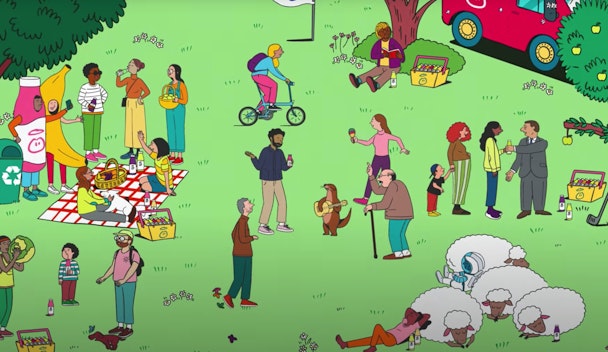
Innocent’s campaign was banned in February for its misleading claims around the sustainability of the brand’s plastic bottles
Analysis of recent ASA rulings by The Independent found there had been a sharp rise in the number of adverts ruled greenwashing, both in recent months and compared to the year before, with 16 advertising campaigns exaggerating brands’ green credentials or making claims that could not be substantiated.
Toby King, a spokesperson for the ASA, explains to The Drum that this is likely due to the watchdog’s Environment and Climate Change Project, which brings together guidance on greenwashing for the first time, alongside commissioning research into high-priority areas. “The project sends a clear signal that the ASA will be shining a brighter regulatory spotlight on advertising issues that relate to climate change and the environment in the coming months and years,” he says.
The ASA has also added a dedicated complaints portal for environmental claims to its website.
“We know that consumers are increasingly concerned about knowing about the climate impact of the products and services they use. We’re seeing a rising number of complaints specifically around misleading green claims, and expect this will be a key part of our work in the years ahead,” continues King.
Geraint Lloyd-Taylor, partner and deputy head of advertising and marketing at law firm Lewis Silkin, explains that the purpose of the ASA’s (and CMA’s) crackdown on greenwashing is ultimately to press companies to do more to make their products and their business practices more environmentally friendly.
Last year the CMA also announced it will be cracking down on greenwashing through the rollout of its Green Claims Code.
Lloyd-Taylor says the trade watchdogs “will allow companies to make specific, evidence-based claims about their environmental credentials. However, the regulators will discourage advertisers from making very broad environmental claims, unless they go above and beyond to justify them, and that will be a very hard sell when it comes to products that involve a significant amount of plastic.”
King says that going forward, advertisers need to make absolutely sure that their green claims aren’t misleading. “They should have sufficient evidence to back up any claims, and not suggest their products or services are more eco-friendly than they actually are. We won’t hesitate to take action against any ads that break our rules.”
Take a look below to see the ads that have been ruled as greenwashing.
1. Ryanair
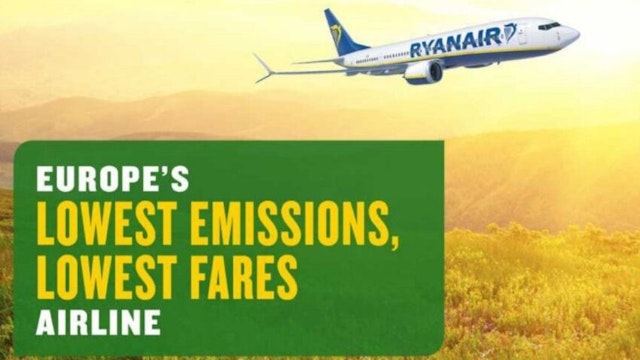
This Ryanair campaign that claimed it to be Europe's “lowest emissions airline” was ruled “misleading” by the ASA due to the inherently high-emitting nature of airline travel.
At the time, Ryanair says its claims were based on data from the European aviation organization Eurocontrol and airline efficiency rankings produced by Brighter Plant, arguing that its “low emissions” credentials were due to a young, efficient fleet of aircraft and its operating with largely full aircraft.
The ASA ruled these claims had “little substantiation” and the ads were no longer allowed to run in their previous form.
2. Oatly
The popular plant milk brand fell foul of ASA regulations after it made various claims about the food industry and the brand’s environmental commitments.
The claims included that Oatly generates “73% less CO2e v milk” and “The dairy and meat industries emit more CO2e than all the world’s planes, trains, cars, boats etc combined”
The ASA investigated the claims and said they were misleading as they were not specific enough around what products the ads referred to.
Read more here.
3. Alpro
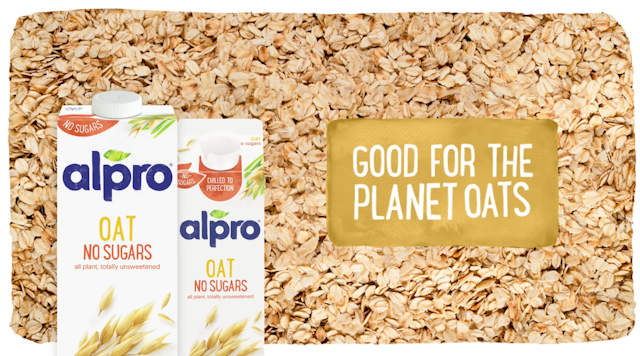
Alpro was urged by the ASA to take greater care over its environmental claims after its poster campaign read, ‘Next stop, your recipe to a healthier planet!’ and on the other side, ‘Good for the planet, good for you.’
The statement was challenged for its vagueness, despite Alpro’s defense stating that “consumers would understand the claim meant that the Alpro product had a lower environmental impact than alternative dairy-based products.”
However, the ASA said these claims must be less ambiguous as a distinction needs to made between products that have “a net positive environmental benefit or were less detrimental to the environment” – in this case compared to dairy equivalents.
Read more here.
4. Innocent Drinks

Complainants took issue over the ‘Little Drinks, Big Dreams’ campaign’s recycling-focused messaging, despite Innocent’s single-use plastic products.
The ad was ruled misleading by the ASA for implying that “purchasing Innocent products was a choice that would have a positive environmental impact when that was not the case.”
Read more here.
5. Quorn
This ad for Quorn Wonder Grains, seen in April 2020, featured a woman walking back to her desk in an office with a flask of water and a Quorn pot.
A voiceover stated: “If you care about climate change, take a step in the right direction with new Quorn Wondergrains.” However, complainants challenged whether the claims that the product could help reduce their carbon footprint and had a beneficial effect on climate change were misleading and could be substantiated.
6. Pepsi Lipton
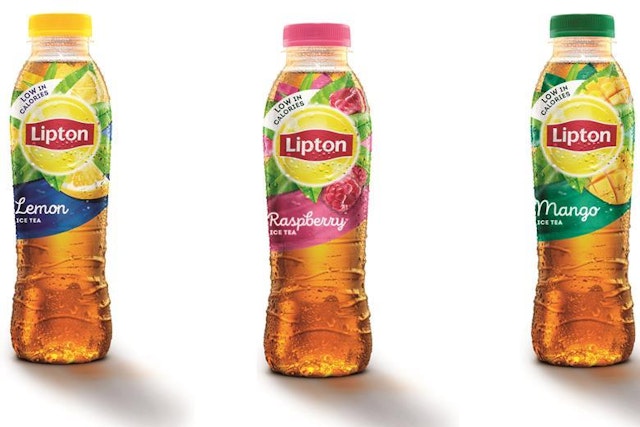
A poster for Lipton Ice Tea seen on bus shelters featured headline text that stated, ‘Deliciously Refreshing, 100% recycled*’ with the asterisk linking to small text at the bottom of the poster that stated, ‘Bottle made from recycled plastic, excludes cap and label.’
Complainants challenged whether the text misleadingly implied that all of the Lipton bottle was made from 100% recycled plastic, to which the ASA agreed, ruling the ad misleading.
7. Hyundai
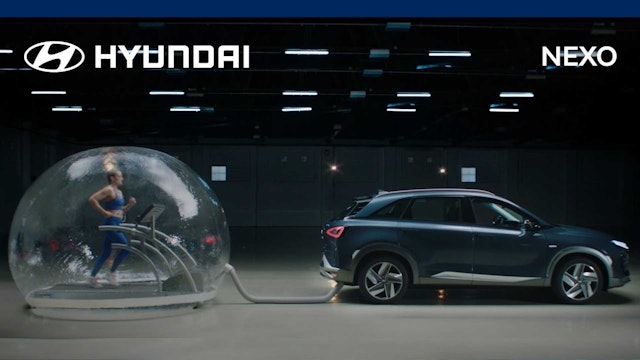
A website ad for Hyundai’s Nexo model included text that stated ‘All-New Nexo’ and ‘Introducing the next generation of fuel cell vehicles: A car so beautifully clean, it purifies the air as it goes.’
The ASA considered that this claim would be understood to mean that the car overall had a negligible environmental impact and would remove impurities from the air as it was driven, such that no impurities caused by driving it would remain in the air, which was ruled misleading.
8. Shell UK
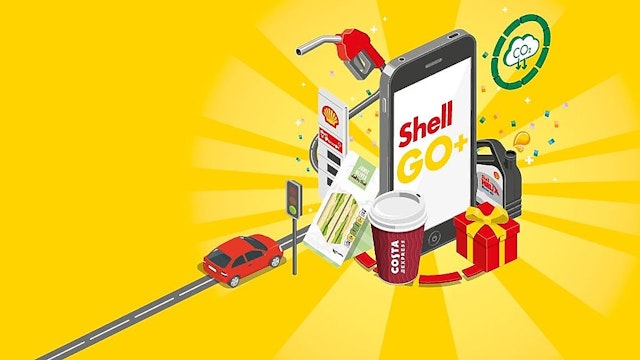
A radio ad for Shell included a voiceover statement: “Although you might not be able to see it, your small actions can have a real impact with Shell. Drive carbon-neutral by filling up and using Shell Go+ today. Make the change. Drive carbon-neutral.”
The ASA understood that Shell Go+ was a loyalty scheme to which consumers were required to sign up and then show their membership card when they made a purchase. In those circumstances, the carbon emissions related to that fuel purchase would be offset by Shell. However, it did not feel satisfied that a time-constrained radio ad was able to provide an adequate explanation of this, and that therefore the term “Drive carbon-neutral” was misleading.

